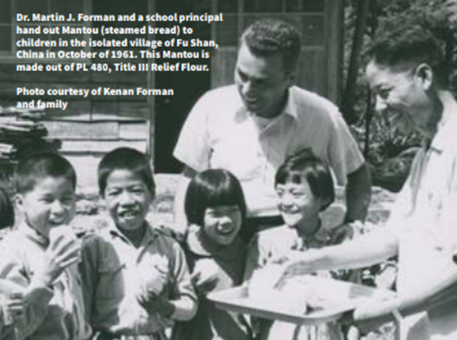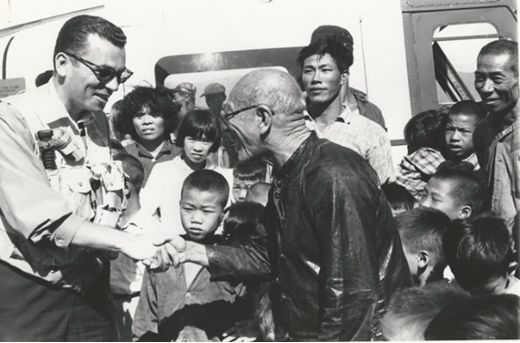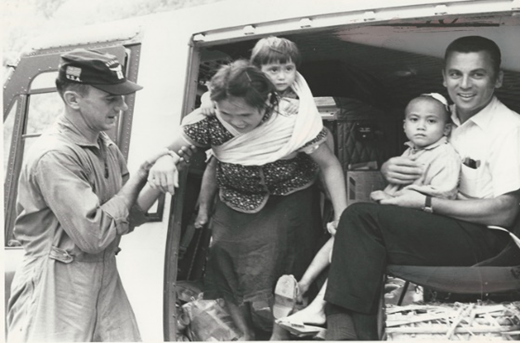
IFPRI is delighted to host the annual Martin J. Forman memorial lecture since 2002. Every year a renowned lecturer is selected for his/her contributions to addressing global nutrition issues and invited to present his/her views on major issues related to the field of nutrition. The lecture series is held in honor of Martin J. Forman, who headed the Office of Nutrition at USAID for more than 20 years and made a significant impact on international nutrition.
Martin J. Forman Biography
Dr. Martin J. Forman was born in Philadelphia, Pennsylvania in 1925 and attended the Philadelphia School for Boys a magnet school for gifted children. He completed his undergraduate education at Temple University and received his Doctorate in Sociology from the University of Pennsylvania. During World War II, Dr. Forman was a pilot squadron commander in the U.S. Air Force, and a military professor at Peabody College in Nashville, Tennessee.
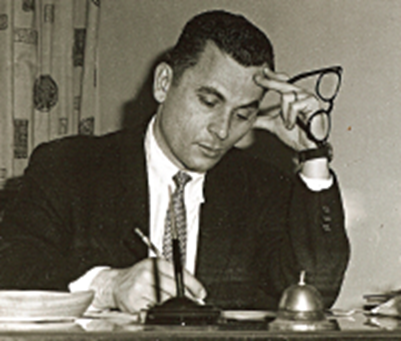
After working in Taiwan with social welfare programs in the late 1950’s, Dr. Forman joined the USAID Office of Food for Peace, where he initiated the highly successful “Operación Niños” (a massive food and nutrition project for children in Latin America). In 1965, he was on the Interagency White House Task Force on Nutrition, which was the U.S. Government’s first effort to look broadly at improving international nutrition.
Dr. Forman headed the Office of Nutrition at the United States Agency for International Development (USAID) from 1966 to 1987. During his tenure, Dr. Forman was on the forefront of international nutrition planning with a vision of multi-sector nutrition programming that included agriculture, education, health and behavior change through social marketing. He had a long-time interest in the nutrition/agriculture nexus, reflected in his joint authorship of the book, “International Agricultural Research and Human Nutrition.” His vision was manifested in the state-of-the-art Collaborative Research Support Program which continues today under the name of USAID’s Feed the Future Innovation Labs for Collaborative Research. The innovation labs bring together academic institutions in the U.S. and developing countries to improve agriculture and nutrition. He was a leader in the evolution and promotion of nutritious blended and fortified foods for children and a key architect in humanitarian assistance planning for nutrition in times of crises. In addition, he initiated publication of the journal, “Nutrition Planning.”
At USAID, Dr. Forman was at the forefront in recognizing the critical role of micronutrients in human development. He ensured USAID’s support to the groundbreaking vitamin A research in Indonesia, and played a critical role in garnering Congressional budgetary earmark for vitamin A. He supported the establishment of the International Vitamin A Consultative Group (IVACG) and the International Nutritional Anemia Consultative Group (INACG). He was also involved in the International Council for Control of Iodine Deficiency Disorders (ICCIDD). He was instrumental in the formation of the United Nations Sub-Committee on Nutrition, and for many years chaired the group of donors associated with it. Dr. Forman established the International Nutrition Committee, under the Food and Nutrition Board of the National Academy of Sciences to serve as an advisory group to USAID. He also established a strong technical assistance program to help partner countries in Asia, Africa, and Latin America to improve nutrition policies, plans and programs.
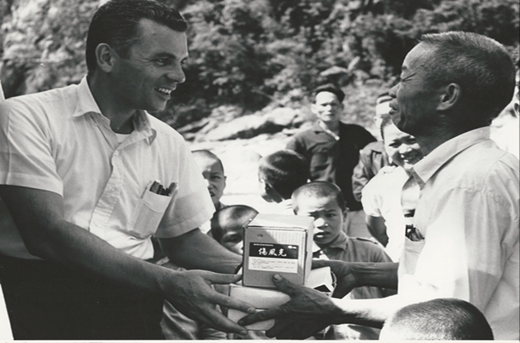
Dr. Forman supported breastfeeding education programs through the “Wellstart” project. Through “Wellstart” USAID established the Lactation Management Education (LME) program at the UC San Diego Medical Center. The LME program promoted breastfeeding as a key contributor to optimal infant and maternal nutrition and health promoting early initiation of breastfeeding, safeguarding colostrum, exclusive breastfeeding to six months and continued breastfeeding through 24-36 months.
Dr. Forman died in 1987.
